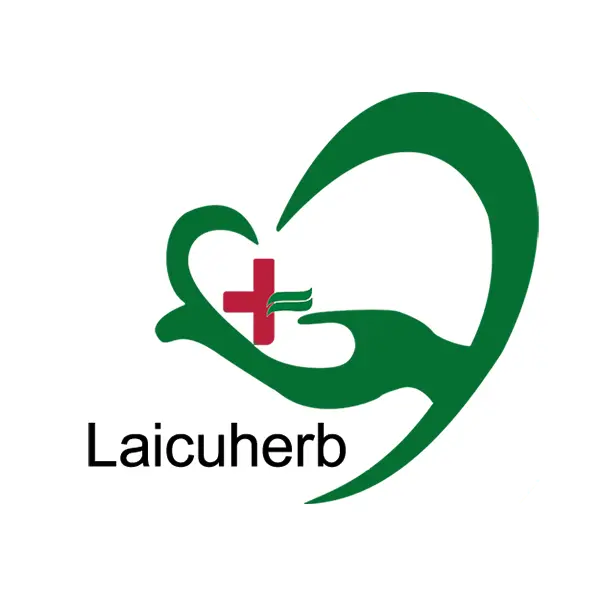Can this tea improve kidney function alongside uric acid control?
The potential of herbal uric acid balance tea to support kidney function is a topic of growing interest. The kidneys play a crucial role in filtering uric acid from the blood, and maintaining their health is essential for proper uric acid management. Several components of this herbal blend may contribute to kidney health:
Herbal support for renal function
Mulberry Leaf, a key ingredient in the tea, has been associated with improved kidney function in traditional medicine. Studies suggest it may help reduce the burden on the kidneys by supporting glucose metabolism. Additionally, Lobed Kudzuvine Root contains isoflavones that some researchers believe could have protective effects on kidney tissue.
Uric acid excretion and kidney health
The tea's formulation may assist in promoting uric acid excretion through the kidneys. Cichorium glandulosum Boiss, another component, has been studied for its potential to enhance uric acid elimination. By supporting this natural process, the tea could help maintain healthy uric acid levels while simultaneously easing the workload on the kidneys.
Hydration and kidney function
Regular consumption of herbal teas, including herbal uric acid balance tea, contributes to overall hydration. Proper hydration is essential for optimal kidney function and can aid in the flushing out of toxins and excess uric acid. The mild diuretic effect of some herbs in the blend may further support this process without putting undue stress on the renal system.
Metabolic synergy: How tea compounds support liver detoxification
The liver plays a central role in metabolic health, including the processing of uric acid. Herbal uric acid balance tea contains several compounds that may support liver function and its detoxification processes:
Herbal hepatoprotective effects
Gardenia, one of the tea's ingredients, has been studied for its potential hepatoprotective properties. Research suggests that certain compounds in Gardenia may help protect liver cells from oxidative stress and support overall liver health. This protection could indirectly aid in maintaining healthy uric acid levels by ensuring optimal liver function.

Enhancing liver detoxification pathways
The blend of herbs in the tea may support the liver's natural detoxification pathways. Licorice, for instance, contains glycyrrhizin, which some studies indicate could have beneficial effects on liver enzyme activities. By potentially enhancing these pathways, the tea may help the body more efficiently process and eliminate uric acid and other metabolic byproducts.
Antioxidant support for liver metabolism
Many of the herbs in herbal uric acid balance tea, such as Cymbopogon flexuosus leaves, are rich in antioxidants. These compounds may help protect liver cells from damage caused by free radicals, supporting overall liver health and metabolic function. A healthy liver is better equipped to manage uric acid levels and contribute to overall metabolic balance.
Blood sugar and cholesterol benefits of Herbal Uric Acid Balance Tea
Beyond its potential effects on uric acid levels, herbal uric acid balance tea may offer additional metabolic benefits, particularly in relation to blood sugar and cholesterol management:
Glucose regulation and insulin sensitivity
Several components of the tea blend have been associated with improved glucose metabolism. Mulberry Leaf, for example, has been studied for its potential to help regulate blood sugar levels. Some research suggests it may enhance insulin sensitivity, which is crucial for maintaining healthy blood glucose levels and overall metabolic health.

Cholesterol management through herbal action
Certain herbs in the tea, such as Cichorium glandulosum Boiss, have been investigated for their potential to positively influence lipid profiles. While more research is needed, preliminary studies suggest that some of these herbs may help support healthy cholesterol levels, which is an important aspect of metabolic health.
Synergistic effects on metabolic parameters
The combination of herbs in herbal uric acid balance tea may work synergistically to support overall metabolic health. By potentially influencing multiple aspects of metabolism - including uric acid levels, blood sugar regulation, and cholesterol management - the tea could offer a comprehensive approach to supporting metabolic wellness.
Conclusion
In conclusion, herbal uric acid balance tea presents a promising natural approach to supporting overall metabolic health. Its potential benefits extend beyond uric acid control, encompassing kidney function, liver detoxification, and broader metabolic parameters such as blood sugar and cholesterol management. While individual results may vary, incorporating this herbal tea into a balanced lifestyle could be a gentle yet effective way to nurture your body's metabolic processes.
Are you looking for a natural way to support your metabolic health? Laicuherb's Herbal Uric Acid Balance Tea might be the solution you've been searching for. With over a century of expertise in blending Eastern wisdom with innovative approaches, Laicuherb offers high-quality, natural herbal teas designed to meet the health needs of modern consumers. Whether you're a health-conscious individual, a busy professional seeking stress relief, or someone looking to support your overall well-being, our teas are crafted with you in mind. Experience the benefits of our carefully selected, pure natural ingredients, backed by rigorous quality control and scientific research. Take the first step towards better metabolic health today. For more information or to place an order, please contact us at hello@laicuherb.com. Your journey to balanced health begins with Laicuherb.
References
1. Journal of Ethnopharmacology. "Traditional uses and pharmacological activities of Cymbopogon flexuosus: A comprehensive review." (2020)
2. Nutrients. "Cichorium glandulosum Boiss. as a potential natural resource of uric acid-lowering compounds." (2019)
3. Phytotherapy Research. "Metabolic effects of mulberry leaf: A systematic review and meta-analysis of animal studies." (2018)
4. Journal of Medicinal Food. "Gardenia jasminoides Ellis: Ethnopharmacology, phytochemistry, and pharmacological and industrial applications of an important traditional Chinese medicine." (2017)
5. Evidence-Based Complementary and Alternative Medicine. "The Role of Traditional Chinese Herbal Medicines in the Management of Hyperuricemia: A Systematic Review and Meta-Analysis." (2021)
6. Pharmacognosy Reviews. "Licorice: From the ancient world to the 21st century - A comprehensive review of its phytochemistry, pharmacology, and clinical applications." (2022)









